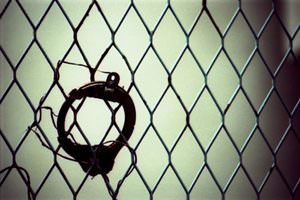Polish Dissidents Cry Out for Snowden
Four members of Poland's Solidarity movement, which toppled the country's totalitarian regime in the 1980s, recently issued an open letter calling for their government to grant NSA whistle-blower Edward Snowden sanctuary from the United States. “The fact that only dictatorial governments agreed to give him shelter shames the democratic states,” they wrote.
Four members of Poland’s Solidarity movement, which toppled the country’s totalitarian regime in the 1980s, recently issued an open letter calling for their government to grant NSA whistle-blower Edward Snowden sanctuary from the United States. “The fact that only dictatorial governments agreed to give him shelter shames the democratic states,” they wrote. “Our democracies discredit themselves with their indifference and cowardice in this matter.”
The call for support is noteworthy, writes Jonathan Schell in The Nation, because its signers — Barbara Labuda, Józef Pinior, Zbigniew Bujak and Wladysaw Frasyniuk — were all stalked by their government when they went underground during Poland’s period of martial law, beginning in 1981. “Edward Snowden did not kill anyone, did not kidnap or attack or maim anyone,” they wrote. “And yet, he is hunted and cornered like a terrorist. Why? Because he revealed an inconvenient truth about the activities of the authorities of his country. He revealed to the world that the American government systematically controls the behavior of millions of his [fellow] citizens through mass registering and listening to their telephone, Skype, Facebook, email and chat activities. Snowden’s revelations uncovered an ugly face of the American administration.”
The European Parliament, they expected, would “recognize the value of his act and will extend over him the protections of European democratic institutions, which were created in order to defend and enlarge civic freedoms and human rights.”
Germane to the Poles’ letter, Schell writes, is the appearance in American media and statements of the U.S. government of the word “dissident” in relationship to Snowden and other whistle-blowers, such as Julian Assange of WikiLeaks and Army Pfc. Chelsea (formerly Bradley) Manning. The appearance is significant, he says, because “it was last widely employed to name those who, in the face of seemingly hopeless odds, had resisted the totalitarian rule of the Soviet Union and its client governments — in other words, people like the four Solidarity leaders who signed the letter in support of Snowden.” Used this way, the word could be understood to indicate the U.S. government is evolving into that sort of oppressive power. As support for Snowden grew globally and at home, the Obama administration challenged the use of the word head on. “He is not a human rights activist,” said Obama’s press secretary, Jay Carney. “He is not a dissident.”
Or as Schell translates: “We are no Soviet Union.”
“[C]ertainly, the four Poles, of all people,” Schell writes, “are as fully aware as any sensible person of the abyss of difference that separates the Obama administration from, say, the regime of Joseph Stalin, slayer of tens of millions of his own people. And yet it is chillingly true at the same time that the US government has gone further than any previous government—not excluding Stalin’s—in setting up machinery that satisfies certain tendencies that are in the genetic code of totalitarianism. One is the ambition to invade personal privacy without check or possibility of individual protection. This was impossible in the era of mere phone wiretapping, before the recent explosion of electronic communications—before the cellphones that disclose the whereabouts of their owners, the personal computers with their masses of personal data and easily penetrated defenses, the e-mails that flow through readily tapped cables and servers, the biometrics, the street-corner surveillance cameras. But now, to borrow the name of an intelligence program from the Bush years, ‘Total Information Awareness’ is technologically within reach. The Bush and Obama administrations have taken giant strides in this direction. That China and Russia—and Britain, and many other countries—have done the same is hardly comforting to the humble individual under the eye of the universal spying apparatus.
“A second totalitarian tendency has been the ambition to control the entire globe—a goal built into fascist as well as communist ideologies of the early twentieth century. In Hannah Arendt’s words, ‘Evidence that totalitarian governments aspire to conquer the globe and bring all countries on earth under their domination can be found repeatedly in Nazi and Bolshevik literature.’ Neither achieved it, or even came close. But now, in the limited arena of information, a sort of shadow or rudiment of this ambition is near realization by the ‘sole superpower,’ the United States. Much attention has been paid to Americans’ loss of privacy rights, but relatively overlooked in the debate over the government’s surveillance activities (at least in the United States) has been that all foreign communications—including those occurring in the lands of close allies, such as Germany—are fair game and are being swept into the US data banks.”
The world saw a testament to the United States’ power when almost no fully democratic country agreed to accept Snowden. With the conspicuous exception of Bolivia, whose president was embarrassingly grounded when we was suspected of carrying Snowden to safety in his plane, bowed to U.S. pressure.
“What happened to Snowden in Moscow diagramed the new global reality,” Schell writes. “He wanted to leave Russia, but the State Department, in an act of highly dubious legality, stripped him of his passport, leaving him—for purposes of travel, at least—stateless. Suddenly, he was welcome nowhere in the great wide world, which shrank down to a single point: the transit lounge at Sheremetyevo. Then, having by its own action trapped him in Russia, the administration mocked and reviled him for remaining in an authoritarian country. Only in unfree countries was Edward Snowden welcome. What we are pleased to call the ‘free world’ had become a giant prison for a hero of freedom.”
— Posted by Alexander Reed Kelly.
Your support matters…Independent journalism is under threat and overshadowed by heavily funded mainstream media.
You can help level the playing field. Become a member.
Your tax-deductible contribution keeps us digging beneath the headlines to give you thought-provoking, investigative reporting and analysis that unearths what's really happening- without compromise.
Give today to support our courageous, independent journalists.






You need to be a supporter to comment.
There are currently no responses to this article.
Be the first to respond.